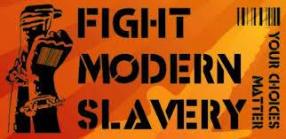
Shockingly more than 70% of firms in a recent survey* believe that modern slavery is likely to occur at some point in their supply chain – particularly in the lower stages of the chain and in high risk-countries and sectors.
It is estimated that there are 21 million victims of forced labour globally and consumers are becoming more aware of ethical issues behind brands and where their goods are made, and imported from, particularly as a result of some high profile cases. One such example was the collapse of the 8-storey Rana Plaza building in Bangladesh in 2013 which housed a number of garment factories many of which made goods for Primark and Matalan and which resulted in many losing their lives.
The relevance of this is that in October 2015, the Government’s Modern Slavery Act came in to force. The Act includes two offences: one for human trafficking and another for forced or compulsory labour, slavery or servitude. Its aim is to reduce the harmful effects of modern slavery.
Under Section 54 of the Act, commercial organisations with a turnover of more than £36 million and who carry on a business in the UK supplying goods and services are expected to produce an annual statement, published in their annual report and/or webpage, indicating their position with regards the use of slave labour or whether they engage in any human trafficking in their supply chain. The Company has to make a slavery and human trafficking statement, approved at the highest level, which either:
sets out the steps that the organisation has taken during the financial year to ensure that slavery and human trafficking is not taking place in any of its supply chains, and in any part of its own business; or
states that the organisation has taken no such steps.
Clearly making a statement that a Company has taken no such steps may have damaging consequences for its reputation and commercial success.
The Government have produced a booklet for employers in the supply chain on ethical standards to comply with – it can be found here ...
Overall it has to be a good thing; ethical trading is in the best interests of us all.
*The study was led by the Ashridge Centre of Business and Sustainability and involved interviews with, amongst others, 2 retailers and tier-one suppliers from a number of sectors.






